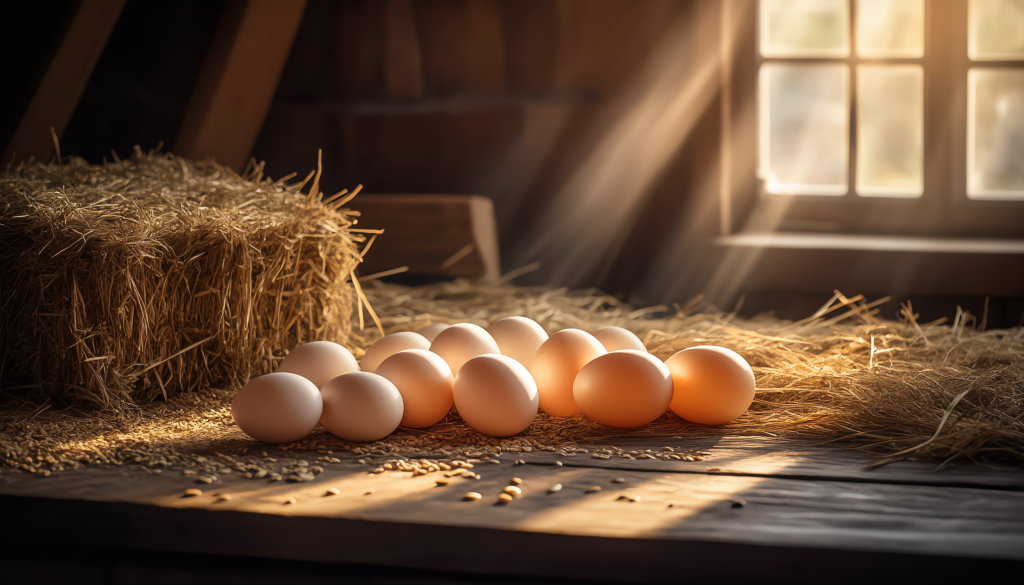If you’ve ever cracked open an organic egg and gasped at its sunset-orange yolk compared to the pale yellow of a conventional egg, you’re not alone. That rich, deep color isn’t just a trick of the light—it’s a telltale sign of something special going on in the hen’s life. But what exactly causes this difference? Is it just marketing magic, or is there real science behind those vibrant yolks? Let’s crack open the mystery and discover the secret reason organic eggs have darker yolks.
The Yolk Color Debate: Why Does It Matter?
First things first: why do people care so much about yolk color? For starters, many believe that a darker yolk means a healthier, tastier egg. While yolk color doesn’t necessarily determine nutritional value, it can be a clue about the hen’s diet—and, by extension, the quality of the egg. But before we get ahead of ourselves, let’s break down what actually gives yolks their color.
What Determines Yolk Color?
The color of an egg yolk is determined by pigments called carotenoids. These are natural compounds found in plants, algae, and some bacteria. When hens eat foods rich in carotenoids, those pigments are deposited into the yolk, giving it its characteristic hue. The more carotenoids in the hen’s diet, the darker and more vibrant the yolk.
The Organic Egg Advantage: What’s in the Feed?
Here’s where things get interesting. Organic eggs come from hens that are raised according to strict organic standards, which means no synthetic pesticides, no GMOs, and, most importantly, no artificial feed additives. Organic hens are typically fed a diet that includes:
- Organic grains and seeds
- Fresh grasses and forage
- Insects and worms (yes, hens love to peck at bugs!)
- Sometimes, supplemental plant-based carotenoids like marigold extract or alfalfa
This diet is naturally rich in carotenoids, especially lutein and zeaxanthin, which are also powerful antioxidants. These compounds are abundant in green leafy plants, yellow corn, and certain flowers—all staples of a free-range or organic hen’s diet.
Conventional Eggs: The Pale Comparison
In contrast, conventional eggs often come from hens raised in large-scale operations and fed a controlled diet of commercial feed. This feed is designed to be cost-effective and nutritionally balanced, but it often lacks the variety and natural pigments found in organic or free-range diets. To compensate, some conventional egg producers add synthetic carotenoids (like canthaxanthin) to the feed to boost yolk color. However, these additives don’t always match the natural richness of organic yolks.
The Science Behind Yolk Color
Let’s geek out for a second. Carotenoids are fat-soluble pigments that dissolve in the yolk’s lipids. The main carotenoids in egg yolks are:
- Lutein
- Zeaxanthin
- Beta-carotene
These pigments not only give yolks their color but also have health benefits for humans, including supporting eye health and acting as antioxidants. Studies have shown that eggs from hens with access to pasture or a diverse, plant-based diet have higher levels of these beneficial compounds.
A study published in the Journal of Food Science found that eggs from hens with access to pasture had significantly higher levels of lutein and zeaxanthin compared to eggs from hens fed a standard commercial diet. Another study in the British Poultry Science journal confirmed that yolk color is a reliable indicator of carotenoid content, which is closely linked to the hen’s diet.
The Taste Test: Does Yolk Color Affect Flavor?
Now, the million-dollar question: do darker yolks taste better? The answer is a bit subjective, but many chefs and foodies swear by the richer flavor of eggs with darker yolks. This is likely due to the higher fat content and more varied diet of organic or free-range hens, which can influence the egg’s overall taste and texture. Plus, the presence of more carotenoids and omega-3 fatty acids (from bugs and greens) can give the yolk a creamier, more buttery flavor.
The Health Benefits of Darker Yolks
While yolk color isn’t the sole indicator of nutritional value, organic eggs with darker yolks do tend to have a nutritional edge. Here’s why:
- Higher in Antioxidants: Lutein and zeaxanthin are potent antioxidants that support eye health and may reduce the risk of age-related macular degeneration.
- More Omega-3s: Hens that forage on grasses and insects produce eggs with higher levels of omega-3 fatty acids, which are good for heart and brain health.
- Lower in Cholesterol and Saturated Fat: Some studies suggest that eggs from free-range or organic hens may have a slightly better fatty acid profile, though this is still debated.
The Free-Range Factor
It’s worth noting that free-range eggs (not always the same as organic) can also have darker yolks, depending on the hens’ access to outdoor space and natural forage. The key is the diversity of the hen’s diet, not just the organic label. However, organic certification ensures that the feed is free from synthetic additives and GMOs, which many consumers prefer.
The Role of Marigold and Other Supplements
Some egg producers—both organic and conventional—add marigold petals or other plant-based supplements to the feed to enhance yolk color. While this is a natural way to boost carotenoids, it’s not a substitute for a truly varied, natural diet. The most vibrant yolks come from hens that have access to a wide range of plants, insects, and sunshine.
The Environmental and Ethical Angle
Choosing organic eggs isn’t just about yolk color or nutrition—it’s also about supporting farming practices that are better for the environment and animal welfare. Organic hens are required to have access to the outdoors, more space, and a natural diet, which leads to happier, healthier birds and, ultimately, better eggs.
How to Spot the Best Eggs
If you’re on the hunt for eggs with the darkest yolks, here’s what to look for:
- Organic certification: This ensures the hens are fed an organic, non-GMO diet and have access to the outdoors.
- Pasture-raised: These eggs often have the darkest yolks because the hens have the most diverse diet.
- Local farmers’ markets: Small-scale farmers are more likely to raise hens on a natural, varied diet.
The Bottom Line: Why Organic Eggs Have Darker Yolks
So, what’s the secret reason organic eggs have darker yolks? It all comes down to diet. Organic hens eat a more varied, natural diet rich in carotenoids from plants, grasses, and insects. These pigments are deposited into the yolk, giving it that iconic deep orange color. In contrast, conventional hens are often fed a less varied diet, resulting in paler yolks unless synthetic pigments are added.
But it’s not just about color. The same diet that gives organic eggs their vibrant yolks also makes them richer in antioxidants, omega-3s, and other beneficial nutrients. Plus, choosing organic supports better animal welfare and more sustainable farming practices.
Next time you crack open an organic egg and marvel at its golden yolk, remember: it’s not just a pretty color. It’s a sign of a hen’s healthy, varied diet—and a little extra sunshine in your breakfast.








